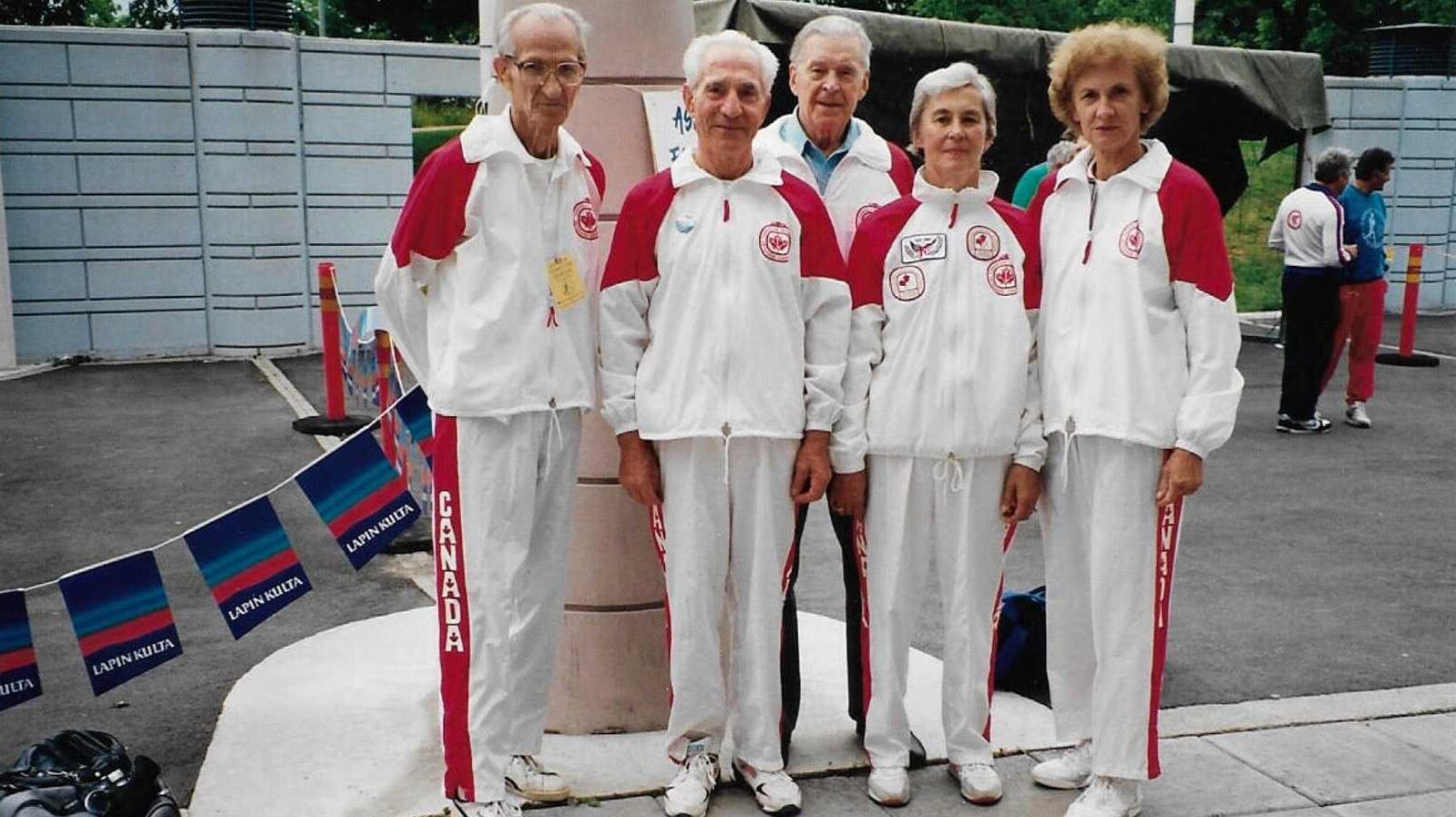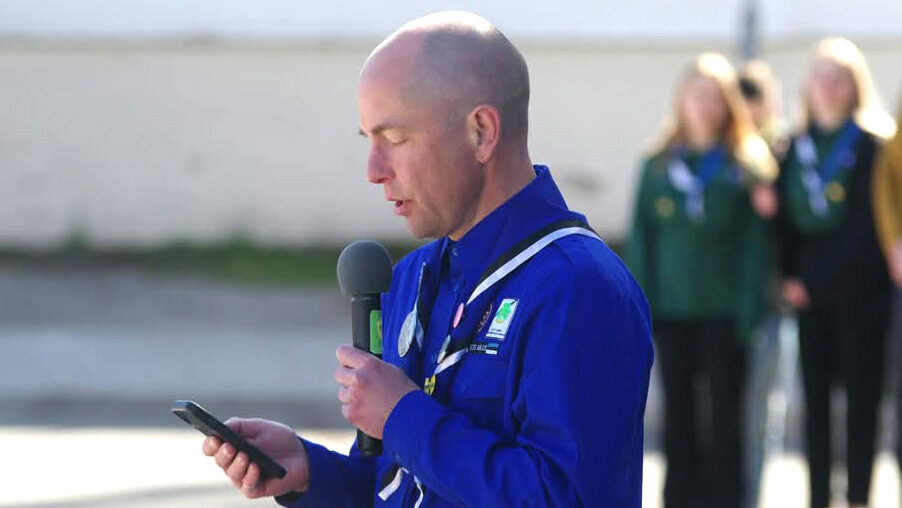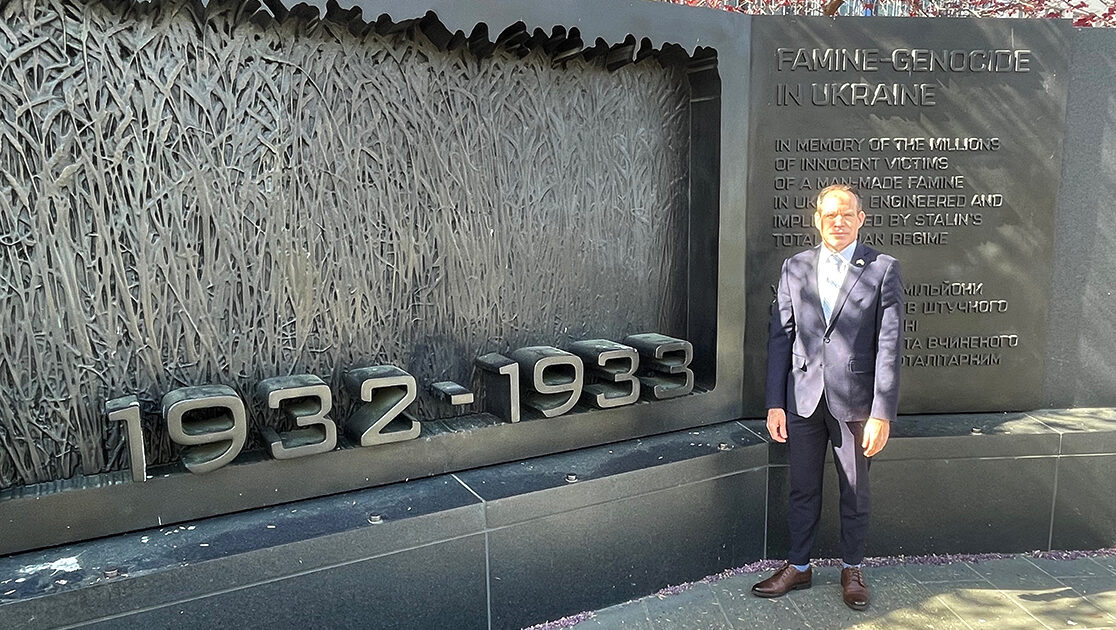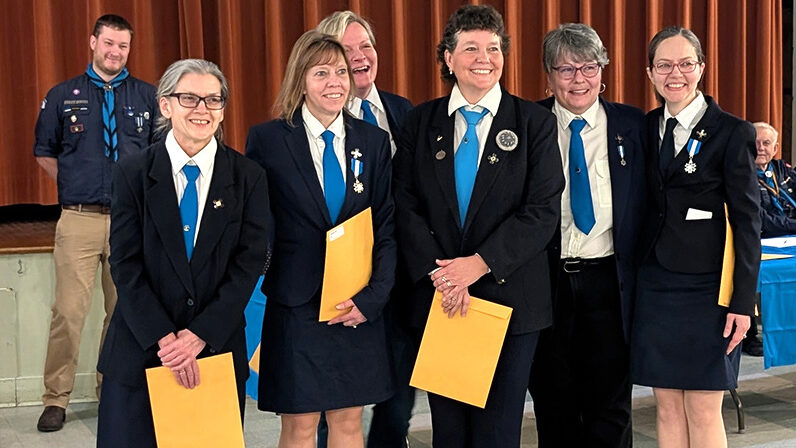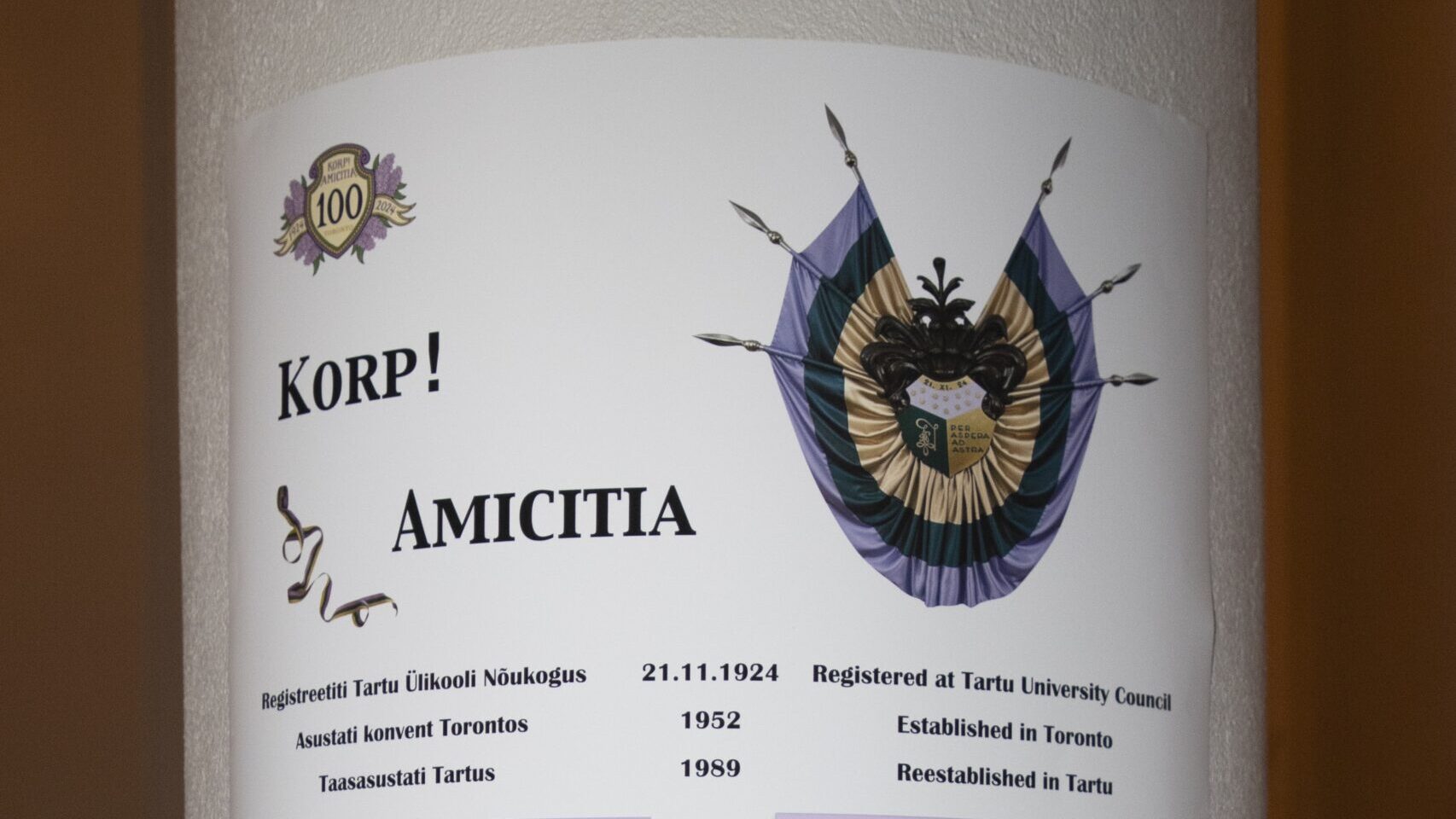Once you get bitten by the bug of competition and physical activity, that urge will stay with you. Perhaps forever.
World Masters Athletics defines masters (or veteran) athletes as “women and men of not less than thirty-five years of age.” For each gender, there are 15 age categories, of five years each, from 35 to 105. Certainly, attending a competition for masters athletes will show you what a lifelong commitment to sports looks like. Though, it's not just casual exercise. These athletes want to win.
Masters sports encompass everything from boxing to swimming. In the Toronto Estonian community, there have been a few notable examples of record-breaking masters athletes in track and field.
On a Canada-wide level, one of these athletes is Helgi Pedel, who currently holds both indoor and outdoor high jump records for the age category of W80 (women between 80 and 84).
Holding at least 15 Canadian masters records, as of November 2021, in events from javelin to indoor triple jump, is Karl Trei. In his life, he dominated the men's age categories from M75 to M90, steadily breaking records as he got older.
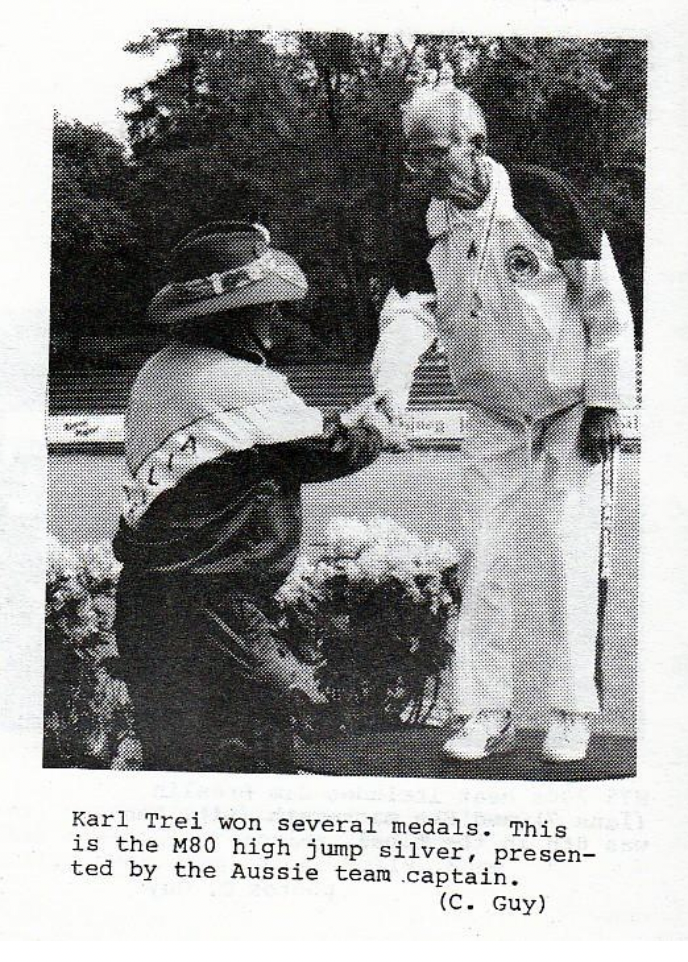
Narrow your record-keeping to just the Province of Ontario, looking at data from as recently as March 2022, and you'll find even more Estonians. Helgi Pedel makes an appearance again through her exceptional abilities in the long jump, high jump, and triple jump events between the W65 and W80 categories. Aleksander Ernesaks holds the M80 record for the 100 metre sprint. Jaan Roos is still the master of long distance in the M45 and M50 categories of the 5,000 metres event. Jüri Daniel threw his way to records in the M95 shot put and discus events. Karl Trei is here again, too, holding 13 provincial records in 100 metres, short hurdles, high jump, long jump, triple jump, and javelin.
Showing the most range in women's masters athletics among these Estonians is Elga Meri, who dominated the W70 200 metres, long jump, and discus, the W75 weight throw, as well as javelin events from W65 to W75.
What's surprising here, is that although Meri enjoyed sports as a spectator, she was not a track and field athlete all along. Not before she left Estonia, nor after she arrived in Canada. For her, it started at age 65, after retiring from her job at Manulife Financial Corporation. It didn't take long for Meri to be recruited into the Kalev Masters Track Club, coached by Arvo Tiidus.
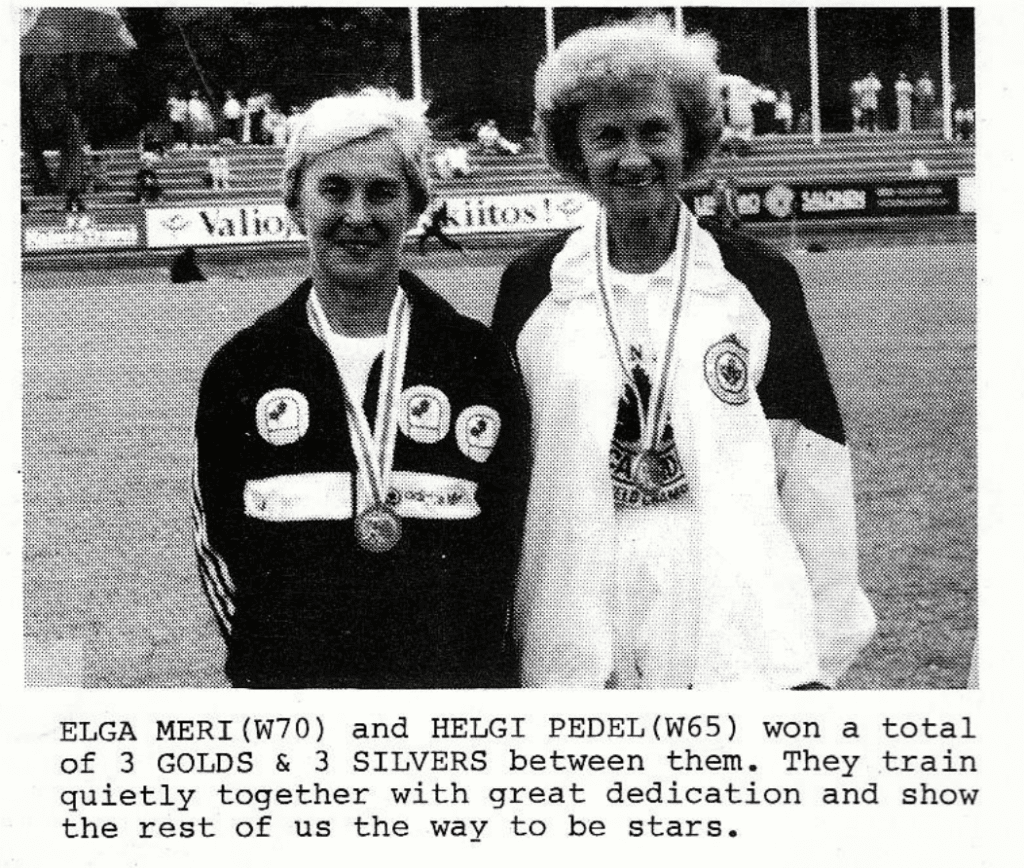
Her son, Jaan Meri, describes how the club was “looking for women competitors to help them score points in the Ontario club competition.” After refining her technique, she began to win events in her local area, within Ontario, across Canada, in the United States, and then at an international level. This encouraged her to strive for more.
Explaining her energetic, sporty demeanour, Jaan recalls how “she was the only grandmother I knew who had weights in the basement for training purposes.” When babysitting her two grandchildren, she would challenge them to races and “take them to the basement and train with them together. She trained very seriously and was constantly in physiotherapy for some injury or another.”
Sports could provide disappointment, such as when a knee surgery prevented Meri from continuing to partake in race walking, a sport that she set a Canadian record in. However, sports could also provide immense satisfaction, or internal strength during life's most difficult moments.
The same could be said for the legendary Karl Trei, after a pedestrian accident, where he was hit head-on by a car when crossing the road. It is rare for anyone to survive an accident like this; but not only did he survive, and restore his ability to walk, he was victorious in a 300 metre short hurdles event just a few years after.
Trei was a man who was up for a challenge. At his posthumous induction into the Hall of Fame, Canadian Masters Athletics member Emil Müller said “It seemed that the more technically demanding an event was, the better Karl Trei liked it. He learned many of the techniques that later brought him so much success as a masters athlete when he was a young man growing up in Estonia. He didn’t start competing in masters events until he was in his 70s, but almost immediately he was winning medals in his many events... His fellow competitors held him in great esteem, not only for his technical expertise but also for his humble manner.”
Each athlete mentioned here was a powerful force in masters sports, with an inspiring individual story. Yet, everywhere they competed, they were united as Estonians, as members of the Kalev team. And they travelled quite a bit to compete, going all over Canada and abroad to countries such as the United States, Italy, South Africa, and Japan, comparing their performance with their contemporaries from all over.
A highlight for five of these Estonian-Canadian athletes was the ninth World Masters Athletics Championships, taking place in Turku, Finland in July 1991—a competition that drew approximately 5,000 athletes.
From this competition, there's a great photo of five Canadian team members at Paavo Nurmi Stadium, all wearing matching red and white tracksuits. From left to right are Karl Trei, Valden Sadul, Aleksander Ernesaks, Elga Meri, and Helgi Pedel. These five athletes on the Canadian team were all Estonian, and from this group, nine medals were won: three gold, four silver, and two bronze.
Among these medals, some highlight performances include Elga Meri's gold medal in W70 category discus (22.22 metres, a Canadian record), silver medal in long jump (3.05 metres, a Canadian record), and the silver medal in triple jump (5.46 metres, also breaking a Canadian record). Helgi Pedel won a gold medal in the W65 high jump. Karl Trei won a silver medal in the M80 high jump. Aleksander Ernesaks and Valden Sadul didn't win medals at this particular championship, but Sadul achieved fourth place in M65 long hurdles and Aleksander Ernesaks achieved seventh place in the M75 400-metre dash. Overall, the Estonians won approximately a quarter of the Canadian team's medals. Also competing in Turku were Canadian Masters Hall of Fame winners Jean Horne and Earl “The Great Earl” Fee.
To make the moment even more exhilarating was the fact that this was happening just before Estonia re-gained its independence. Truly, there is never a dull moment in sports.
So, if you've never been super athletic before, but you've always wondered if you had it in you to excel in this regard, why not go for it? Age certainly doesn't have to be a barrier. As Elga Meri liked to say, “you are as young as you think you are.”
Täismahus artikkel on loetav Eesti Elu tellijatele
Igal nädalal toome me sinuni kõige olulisemad kogukonna uudised ja eksklusiivsed lood uutelt kolumnistidelt. Räägime eestlastele südamelähedastest teemadest, kogukonna tegijatest ja sündmustest. Loodame sinu toele, et meie kogukonna leht jätkuks pikkadeks aastateks.
Hind alates $2.30 nädalas.
